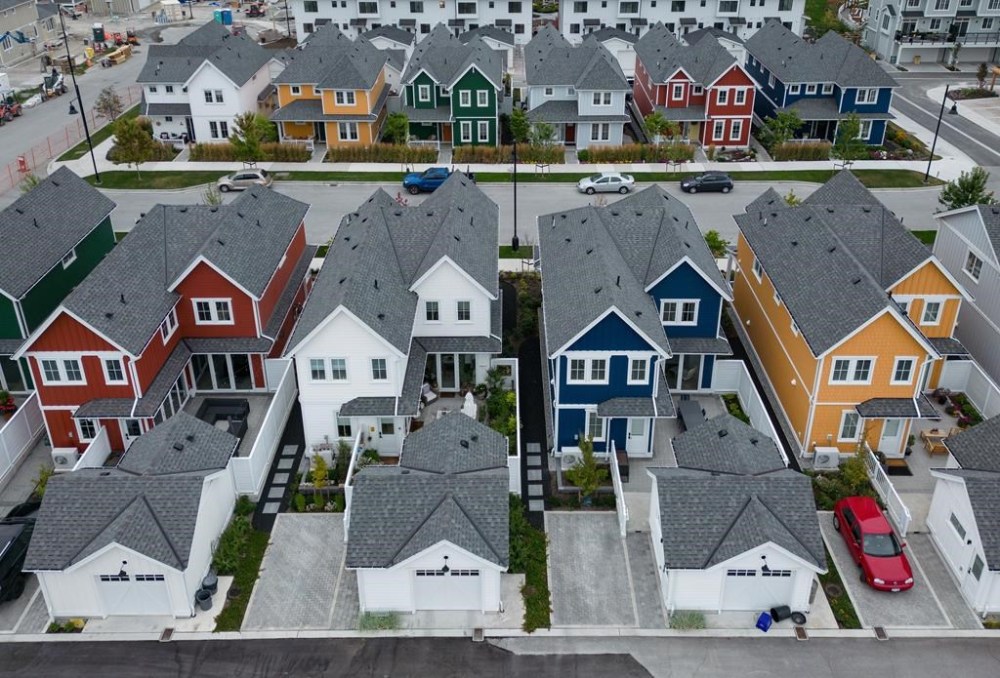B.C. property values flat across most of province, but affordability remains elusive
Advertisement
Read this article for free:
or
Already have an account? Log in here »
To continue reading, please subscribe:
Monthly Digital Subscription
$0 for the first 4 weeks*
- Enjoy unlimited reading on winnipegfreepress.com
- Read the E-Edition, our digital replica newspaper
- Access News Break, our award-winning app
- Play interactive puzzles
*No charge for 4 weeks then price increases to the regular rate of $19.00 plus GST every four weeks. Offer available to new and qualified returning subscribers only. Cancel any time.
Monthly Digital Subscription
$4.75/week*
- Enjoy unlimited reading on winnipegfreepress.com
- Read the E-Edition, our digital replica newspaper
- Access News Break, our award-winning app
- Play interactive puzzles
*Billed as $19 plus GST every four weeks. Cancel any time.
To continue reading, please subscribe:
Add Free Press access to your Brandon Sun subscription for only an additional
$1 for the first 4 weeks*
*Your next subscription payment will increase by $1.00 and you will be charged $16.99 plus GST for four weeks. After four weeks, your payment will increase to $23.99 plus GST every four weeks.
Read unlimited articles for free today:
or
Already have an account? Log in here »
Hey there, time traveller!
This article was published 02/01/2025 (350 days ago), so information in it may no longer be current.
VANCOUVER – British Columbia’s latest property assessments show values remain generally flat compared to the previous year, but researchers warn the numbers don’t herald housing affordability in the famously expensive province.
BC Assessment said prices only fluctuated within a range of plus or minus three per cent in most communities, including major urban areas such as Vancouver, Victoria and Kelowna.
Average residential prices in Vancouver were down 0.8 per cent, and the only Lower Mainland communities where the values of single family homes rose by more than three per cent were Burnaby and Pemberton.

Average residential valuations dropped by two per cent in Victoria, and 2.9 per cent in Kelowna.
The assessments reflect market conditions on July 1, 2024, and were released on Tuesday.
University of British Columbia economist Thomas Davidoff said the relatively flat assessed values were not surprising, and sales numbers since July indicate some markets may have fallen lower.
“I would just emphasize that people shouldn’t be confident that their current assessment is what their home is worth because I think prices are off a bit from them,” said Davidoff, who is director of the Centre for Urban Economics and Real Estate.
“I see as much as 10 per cent (discrepancy between assessed value and prices) in my own micro market.”
Simon Fraser University City Program director Andy Yan said the assessments reflect changes in demand, and the elusiveness of affordable credit for many, even as interest rates drop.
“We might also have to add in what’s happening globally … one sizable marketplace is Asia, and China in particular, (and) those economies have similarly gone into malaise, we similarly see a decline in demand there,” Yan said.
He said B.C. valuations were influenced by the “shifting tectonic plates of supply, demand and finance.”
BC Assessment’s numbers show average residential valuations in Metro Vancouver ranged from a drop of 1.9 per cent in Surrey to a 1.3 per cent increase in Burnaby.
There were drops on Vancouver Island of two per cent or more in Victoria and Tofino, while Duncan and Parksville saw increases of 1.8 and 1.6 per cent respectively.
Valuations were generally flat for strata homes on the island, although they rose in Courtenay and Campbell River by four and five per cent respectively, while falling in View Royal by four per cent.
Yan said flat property values do not translate to significant affordability improvement, with the ratio of income to housing costs remaining out of balance in B.C.
“I think it’s very important to define affordability,” Yan said. “Even at these values, how much are (the properties) actually, coupled with local incomes? We are far from affordability in our time.”
Looking forward, Davidoff highlighted uncertainty about the affordability impact of the incoming U.S. administration of Donald Trump and his threat of tariffs on Canadian goods.
“My best guess is no real change in prices over the next year — and today’s asset price is always one’s best guess for tomorrow’s asset price — but I have tremendous uncertainty (about the situation),” Davidoff said.
This report by The Canadian Press was first published Jan. 2, 2025.

